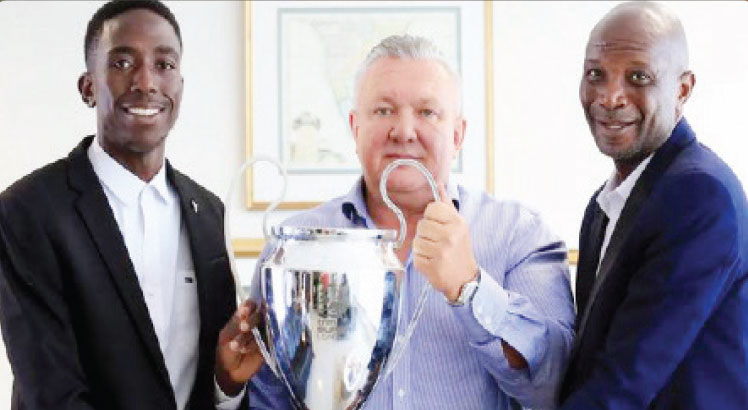Election race tight–EU observers

The European Union Election Observation to Malawi 2014 Tripartite Elections have said that the May 20elections are tight to predict the winner, but have challenged Malawi, being the chair of Sadc, to conduct them in credible and transparent manner to set the standard for polls in the region.
Speaking in Blantyre on Friday during the launch on the observation mission, chief observer Veronique de Keyser, said the importance of this year’s election has attracted more than 80 observers coming from all 28 European countries—the largest number of European Union (EU) observers in the history of elections in Malawi.
“These are challenging elections because, for the first time in Malawi, they are being carried out at three different levels at the same time. They are also very competitive elections since no one can predict today the results. This observation mission has been sent for these reasons,” explained de Keyser, a Belgian and member of the EU Parliament.
Keyser refused to say whether EU is frustrated that reforms the previous missions had recommended to the electoral process remain outstanding, saying, as an observer mission, their role is limited to observation, but said it is up to Malawi to set the tone for the region it leads to hold credible and transparent elections.
“I can’t talk about the EU being frustrated,” said the veteran elections observer who has been to Malawi before, Sudan, Guatemala among other countries for similar missions. “What I would say is that Malawi, as chairperson of Sadc, has an opportunity to use the credibility and transparency of these elections to set a benchmark for elections in the region.”
Outstanding recommendations from the previous EU observer missions include the need for a clear separation in use of public resources between State and partisan functions, equal access by all contestants to State resources, including public media, plus declaring publicly sources of campaign funding and setting a ceiling for the same.
Keyser, who arrived in the country three days ago for a mission that will last until June 15, said she has so far had meetings with some presidential candidates, diplomats, members of the civil society, the chairperson of the Malawi Electoral Commission (MEC), Maxon Mbendera, and the Chief Justice Anastazia Msosa.
“I can confirm that during our discussions with MEC, we looked at the challenges resulting from the voters’ roll. I was given the impression that MEC is working hard to resolve the problems before the polling day and make sure they don’t affect the credibility of the elections,” said Keyser in a response to a question. “But as you know, I have only been in the country for three days to make my own assessment of MEC.”
With Msosa, the EU chief observer said they tackled the need for petitions arising from the electoral process to be resolved expeditiously.
“I got the assurance that mechanisms are in place to make sure this is done,” she said.
According to her, this observer mission will assess all aspects of the electoral process and the extent to which it complies with national laws and international commitments agreed upon by Malawi.
A statement from the mission says a core team of seven analysts —with electoral, legal, political, human rights, media and data analysis expertise—arrived in Blantyre on April 12, 2014 to coordinate the mission.
A group of 28 long-term observers (LTOs), according to the statement, will be deployed throughout the country on April 27 to observe the pre-election and will report back to the core team in Blantyre.
“Shortly before the elections, 40 Short-Term Observers (STOs) will join the mission to observe voting, counting and tabulation of the results,” reads the statement, adding that observers from the EU diplomatic representations in Malawi will further reinforce the mission closer to election day.
Keyser said the mission will cover the political campaigns, pre-election preparations, elections day—polling, counting and tabulation of results —complaints and appeals process as well as the announcement of results.
This, she explained, will include a thorough analysis of the legal framework, the work of the election administration, campaign activities, the conduct of the media in covering the elections and the mechanisms for electoral disputes.
“Shortly after election day, at least within 48 hours, the mission will issue a statement containing its preliminary findings. A final report, including a comprehensive assessment of all aspects of the electoral process and with possibly recommendations for future elections, will be released approximately two months later,” said Keyser.






Why should an outsider from EU be the one to tell you that your *own* elections are tight? Seriously? This is really poverty of the mind.